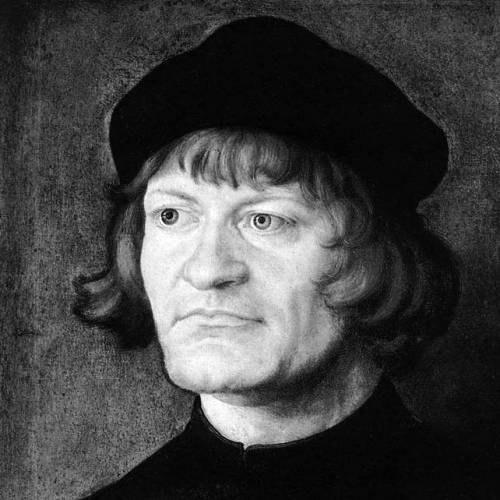 https://heaven.world/en/huldrych-zwingli
https://heaven.world/en/huldrych-zwingli
Firstname
Huldrych
Lastname
Zwingli
Name
Huldrych Zwingli
lived from:
1484-01-01
lived until:
1531-10-11
Huldrych Zwingli was 1506-1516 pastor in Glarus / Switzerland, where he was very popular in his popular style among men. At the same time he took as a military chaplain in the years 1512 - 1515 in the campaigns of Glarus in support of the Pope against the French part and witnessed the battles here in Pavia, Novara and the Battle of Marignano in Melegnano. After the disastrous defeat of the Swiss against the French many wanted a quick peace agreement. Zwingli but was against it because he continued to support the Pope. His position in Glarus became untenable, therefore, he had to leave his parish. Already in 1515 he had met Erasmus of Rotterdam. Zwingli now learned Greek, was able to read the original text of the New Testament and now sought the called for by Erasmus purification of the church. 1516 he was appointed as a secular priest to the Einsiedeln monastery. Since the Zurich government as Zwingli was set against the mercenaries, they caught up with him in 1519 as a priest to the Goss Münster from Zurich and he began to preach the gospel of Jesus Christ. Great influence exercised Martin Luther appearance at the Leipzig Disputation in 1519 on Zwingli, more sharply were now his attacks on the structures and teachings of the Church. 1522 he wrote his treatise "On erkiesen and freedom of food" with sharp attacks against legal fasting. In January and October 1523, the Council of the City of Zurich held disputations between Zwingli and the Bishop of Constance to clarify the broken issues. The second defense persuaded the city council to introduce the Reformation in Zurich. The Council asserted itself as a competent ecclesiastical authority and led to the string of Christ a reform. Everything that was not based on the Bible, should be abolished. So the monasteries were reformed, designed the liturgy of baptism after Luther's example, removed the images in the churches, abolished processions, organ and congregational singing, Confirmation and extreme unction, the number of holidays decreased, held communion in both kinds at a table, a marriage court introduced. Finally, with the establishment of a synod in 1528 it was possible to draw the Reformation on track. Zwingli Theology is strongly influenced by Augustine and the humanism of Erasmus of Rotterdam. The practical and political side of faith was important to him, an aristocratic-representative democracy was for him the appropriate constitution. 1525 he published his major work, "De vera ac falsa religione" (Of true and false religion). Theologically agreed Zwingli largely with Luther agree in the consequences he was much more radical and consistent, it was the reorganization of the relationships central concern, Zwingli was in all this at the same time politicians. He forged to form a grand coalition against the Habsburgs: For this reason it came through the mediation of Philip of Hesse in 1529 to Marburg Colloquy between Zwingli and Luther. on many issues, agreement was possible, but not on the issue of substance of the elements during the sacrament. While Luther set the current Catholic doctrine of conversion of elements, which actually consists of bread and wine at the Last Supper, real and final body and blood of Christ, Zwingli insisted that the bread and wine only signs are that on the body and blood of Christ point. Since that time the Lutheran Protestantism was separated from the Reformed, coined by Zwingli and John Calvin. Zwingli Reformation sat mainly in Switzerland, then in France and Northern Italy through, they exerted great influence on the Scottish and the Anglican Church. 1529 led the religious hostilities between Catholic and Protestant cantons of Switzerland in an open civil war, in the so-called "First Kappel War". The first peace after "Kappeler Milk Soup" was good for a little peace agreement. Zwingli clung to it to enforce the evangelical preaching everywhere. But he also took a war against the central Switzerland in purchasing. As the reformed cantons in central Switzerland placed a lock provisions under pressure, this again marched against Zurich. Zwingli was one of the one of Zurich next, outnumbered military troop, who was beaten in the "Second War of Kappel" Kappel Monastery at annihilating. Zwingli died on the field, almost as a soldier of his reform efforts. His body was quartered, burned, and the ashes given to the wind.
Kappel am Albis (ZH), Switzerland
http://www.zh.ref.ch/a-z/zwingli